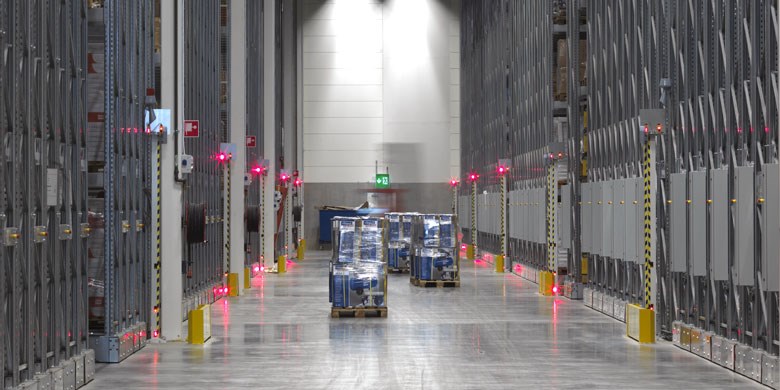Climate-Controlled Warehousing in Wisconsin: A Green Solution for Temperature-Sensitive Storage
Dec 20, 2023
BlogClimate-Controlled Warehousing in Pennsylvania: The Keystone State’s Cool Storage Solution
Introduction:
Pennsylvania, known as the Keystone State, has always played a pivotal role in the nation’s history. Today, it continues to be at the forefront of modern solutions in various industries. Climate-controlled warehousing is one such innovation that supports businesses in preserving the quality and integrity of temperature-sensitive products. In this blog, we will dive into the world of climate-controlled warehousing in Pennsylvania, presenting statistics, educational insights, and more about this essential service.
Statistics on Climate-Controlled Warehousing in Pennsylvania:
- Rising Demand: Pennsylvania has seen a consistent increase in the demand for climate-controlled warehousing facilities. This is largely driven by the state’s strategic location and its role as a distribution center for the East Coast.
- Diverse Industries: Climate-controlled warehouses in Pennsylvania serve a wide spectrum of industries, including food and beverage, pharmaceuticals, electronics, and manufacturing. This versatility highlights the adaptability of these facilities.
- Market Expansion: The growth of e-commerce and online shopping has significantly increased the need for climate-controlled storage. Pennsylvania is a hub for e-commerce distribution centers, further driving the demand for these facilities.
- Economic Impact: The climate-controlled warehousing industry in Pennsylvania has positively impacted the state’s economy by generating jobs and revenue. It contributes to the growth and stability of the local economy.
Educational Insights on Climate-Controlled Warehousing:
- Cutting-Edge Technology: Climate-controlled warehouses in Pennsylvania are equipped with state-of-the-art technology. This includes advanced temperature and humidity control systems that ensure precise and consistent environmental conditions.
- Sustainability Practices: Sustainability is a top priority in these facilities. They implement eco-friendly technologies like LED lighting and energy-efficient insulation to reduce energy consumption and minimize their carbon footprint.
- Specialized Zones: Warehouses are often divided into specialized zones with varying temperature and humidity levels, allowing for the safe storage of a broad range of products, from frozen goods to sensitive electronics.
- Regulatory Compliance: Staff in climate-controlled warehouses are well-versed in adhering to industry-specific regulations, ensuring the safe and compliant storage of items such as pharmaceuticals and perishable goods.
Key Benefits of Climate-Controlled Warehousing in Pennsylvania:
- Product Quality Assurance: These facilities are instrumental in preserving the quality and freshness of products, reducing spoilage and waste, which is especially vital for businesses dealing with perishable goods.
- Extended Shelf Life: The controlled environments in these warehouses extend the shelf life of temperature-sensitive products, allowing businesses to manage their inventory more efficiently.
- Environmental Responsibility: By adopting sustainable practices, climate-controlled warehousing in Pennsylvania contributes to a greener supply chain, aligning with the state’s commitment to environmental conservation.
- Flexibility in Supply Chain Management: These warehouses provide businesses with the flexibility to adapt to changing market demands and seasonal fluctuations, ensuring product availability year-round.
Conclusion:
Pennsylvania, with its thriving climate-controlled warehousing industry, stands as a testament to modern logistics and storage solutions. The statistics clearly demonstrate the industry’s growth, while the educational insights highlight the technological advancements and commitment to sustainability. These facilities play a pivotal role in supporting businesses in need of precise temperature and humidity control, ensuring the quality and safety of their products. As the Keystone State continues to grow and evolve, climate-controlled warehousing remains a cornerstone of its logistics and supply chain infrastructure.


 Dave McGowan has been a member of the WEL Family since May 1989. He is a husband and father of two children. Dave is also a U.S. Army veteran and served in Vietnam in 1971-1972, and he attended driving school soon after he was released from the military in 1974.
Dave McGowan has been a member of the WEL Family since May 1989. He is a husband and father of two children. Dave is also a U.S. Army veteran and served in Vietnam in 1971-1972, and he attended driving school soon after he was released from the military in 1974. During his career with WEL, Phil has worked as a driver, dispatcher, terminal manager and customer service manager. He says he always was a driver first, though non-driving jobs taught him financial management that helps him as an owner-operator.
During his career with WEL, Phil has worked as a driver, dispatcher, terminal manager and customer service manager. He says he always was a driver first, though non-driving jobs taught him financial management that helps him as an owner-operator.